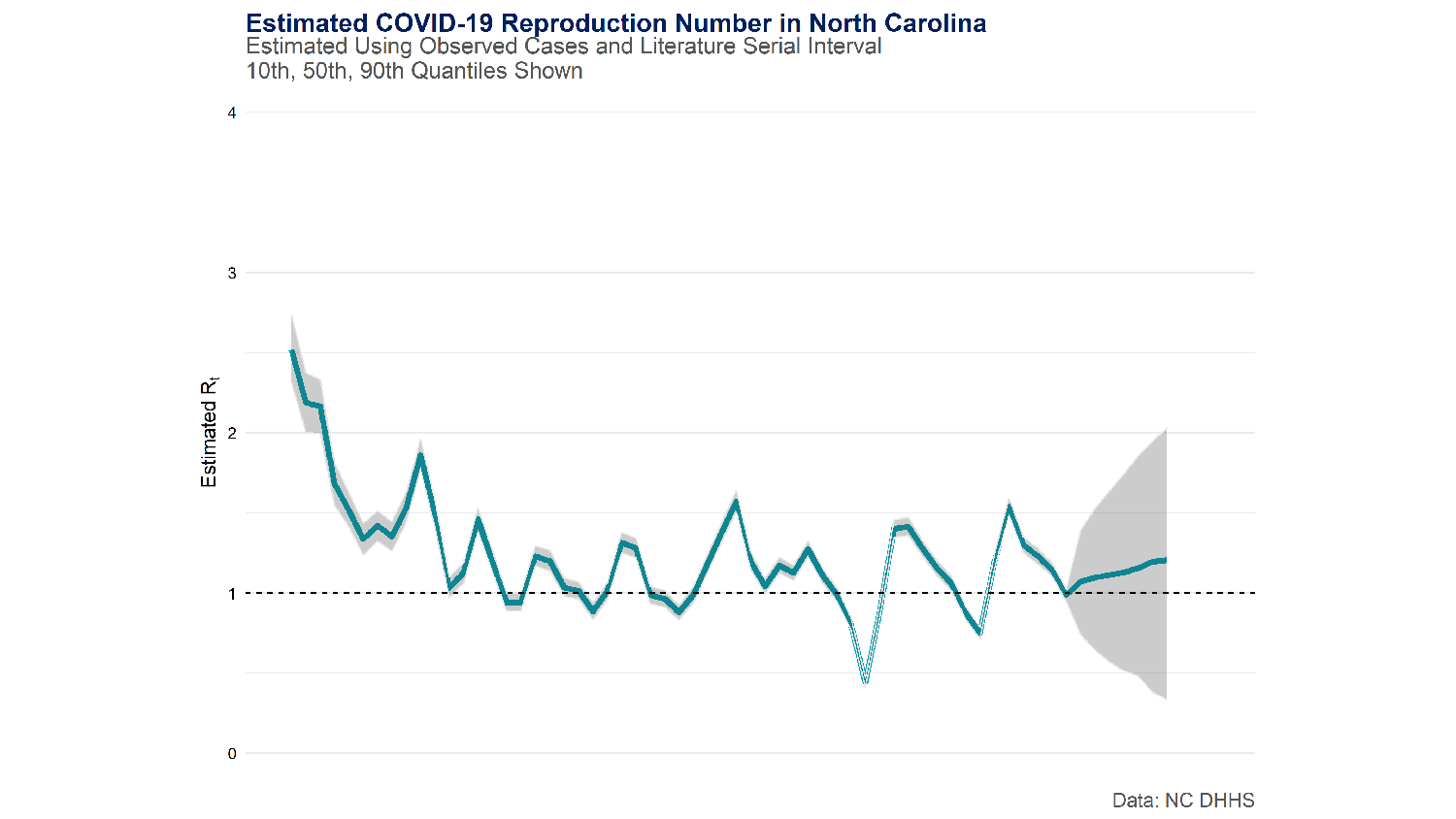Statistics and COVID-19: Forecasting the Spread

Visit the online Master of Statistics program page to learn more and apply for the program.
Members of the Wolfpack have stepped up in unimaginable ways during the COVID-19 pandemic.
Michael DeWitt, a 2019 graduate of the Master of Statistics online program, has been working since the beginning of the outbreak to forecast the spread of the pandemic in a few North Carolina counties for Greensboro-based Cone Health.

DeWitt is a data scientist and applied statistician in the health care field, and he’s putting his NC State Online education to immediate use in this role.
“I am forecasting the spread of the pandemic in Guilford, Alamance, Rockingham, and Randolph counties and the corresponding impacts on our personal protective equipment (PPE),” says DeWitt.
“I built a simulator in Shiny — hosted in a docker container — so that our leaders can manipulate the inputs,” DeWitt adds. “It is quite frankly the most frightening work I have ever done because each data point represents a person caught in this pandemic, but it feels good to be in the thick of it.”
Teaching Associate Professor and Director of Statistics Online Education Justin Post explains this work and its significance in helping leaders make data-informed decisions.
“R is a powerful statistical software widely used in statistics and data science. R can be used to summarize data, create models, and communicate results,” Post says.
Post explains that with the lack of PPE supplies in the current pandemic, being able to create a model that can be used to allocate the supplies is vital. “This model, of course, has to make assumptions and take in inputs. The model can be run using different inputs and the results compared. This can help to determine best- and worst-case scenarios among other things.”
“R Shiny is a package that can be used with R to create interactive web applications — similar to what is seen on Johns Hopkins coronavirus website,” Post says.
These types of interactive applications allow users to manipulate the inputs based on their expertise and knowledge. Medical and political leaders will then have the most information possible at their disposal.
To host the R Shiny applications in an accessible and secure place, DeWitt used a container.
“A container is essentially a self-contained bit of software. Everything needed to run the application — operating system, configuration files, R, etc. — is in one place without local dependencies, and the container can be assured of working as intended once hosted,” says Post.
All of these topics are covered in the ST 558: Data Science for Statisticians course offered as an elective in the statistics master’s program or as part of the Graduate Certificate in Applied Statistics and Data Management. “We also cover a lot of modeling techniques across most of our courses,” Post adds.
This type of work is just one way NC State alumni are stepping up to make a difference. DeWitt’s work will help local leaders make data-driven decisions to protect nearly 1 million people across the four counties.
- Categories:


